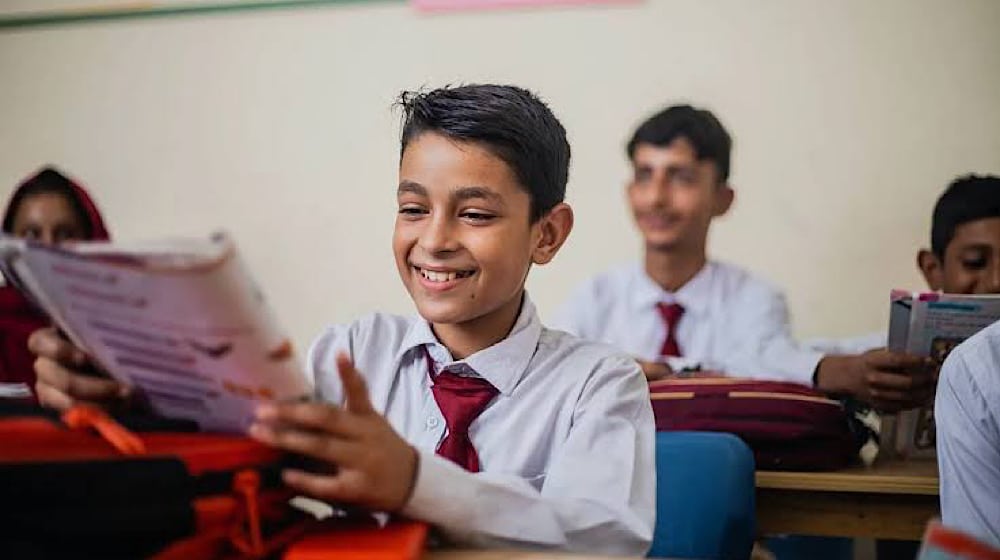
Punjab Education Department Announces Exam Schedule for Classes 1–7 Under New 2026 Academic Plan
The Punjab Education Department has officially finalized the annual examination schedule for classes 1 to 7 as part of its newly approved academic plan for the year 2026. The announcement marks a major step toward restructuring academic activities across public schools in the province. According to the notification, the annual exams for grades 1–7 will be conducted from March 10 to March 22, 2026, and the results will be announced on March 31, 2026. This early confirmation allows schools, teachers, students, and parents to prepare ahead of time while aligning with the department’s updated education strategy.
The finalization of the schedule comes along with several significant policy updates, including the approval of a revised admission policy, a new school calendar, and key syllabus updates for the upcoming academic year. With these changes, the department aims to modernize the structure of Punjab’s schooling system while addressing ongoing learning challenges that have intensified over recent years.
Updated Textbooks and Curriculum Changes for 2026
As part of the new academic plan, the Punjab Education Department has confirmed that updated textbooks will be printed in December 2025. Among these changes are 29 newly revised textbooks for classes six to matric, developed to improve content quality, reduce outdated material, and support competency-based learning models. These books will feature improved layouts, updated exercises, clearer concepts, and better alignment with student learning outcomes.
The revised syllabus focuses on enhancing literacy and numeracy, especially for younger students who have struggled in these areas due to inconsistent schooling, pandemic disruptions, and socioeconomic barriers. Subject experts have also emphasized the importance of integrating digital awareness and life skills to make the curriculum more relevant to the modern world.
New Academic Year to Begin April 1, 2026
The new academic session in Punjab will begin on April 1, 2026, across all public schools. To ensure a smooth start, the department will distribute free textbooks to students starting from April 5, allowing learners to begin the year with full learning materials. Free books have long been a crucial support system for millions of children in Punjab, especially those from economically challenged households.
Education officers have stated that the timely printing and distribution of textbooks will prevent delays that previously disrupted classroom learning. Schools will also receive new academic calendars outlining all activities, examination timelines, holidays, parent-teacher meetings, and co-curricular events.
Punjab’s Learning Crisis Continues to Deepen
While the new academic plan aims to bring positive change, the Education Department has expressed serious concern over Punjab’s deepening learning crisis. During the 2025 session, the province reported more than 28 million children out of school, and projections indicate that this number could exceed 30 million in 2026 if urgent interventions are not implemented.
This alarming statistic highlights a systemic issue: millions of Pakistani children remain deprived of their fundamental right to education. According to education officials, the dropout rate has increased dramatically, particularly among students from lower-income families who often face financial pressure to join the workforce at an early age.
Declining Enrollment and Gender Disparities
One of the biggest challenges highlighted by the Punjab Education Department is the declining enrollment rate among girls. A growing number of young girls—especially from rural districts—are leaving school due to poverty, early marriage pressures, cultural restrictions, and lack of safe transport. With fewer girls advancing to higher grades, the gender gap in education continues to widen.
Officials warned that rising child labor is worsening the situation. Many underage children are working in restaurants, workshops, factories, and informal sectors instead of attending school. The department emphasized the need for stronger enforcement of child labor laws, community awareness campaigns, improved school facilities, and incentives to bring children back into the classroom.
Government Initiatives and Future Plans
To counter the rising dropout rates, the Punjab Education Department has planned multiple initiatives for the 2026 academic year:
1. Strengthening Early Grade Learning
Programs targeting foundational literacy and numeracy will be expanded across government schools. Teachers will receive training to adopt modern teaching methods that improve comprehension and reduce student disengagement.
2. Community Outreach and Awareness
The department aims to collaborate with local communities, parents, and social organizations to encourage families to send their children—especially girls—back to school.
3. Improved Monitoring of Attendance
Schools will adopt digital attendance systems to track student presence, identify dropouts early, and take timely action.
4. Expansion of School Facilities
Construction of additional classrooms, improvement in sanitation facilities, and provision of safe drinking water are key elements of the new infrastructure plan.
5. Incentives for Low-Income Families
Scholarships, transport facilities, and school supply packages may be expanded to help families who cannot afford basic educational expenses.
The Punjab Education Department’s newly finalized exam schedule and academic reforms for 2026 reflect a strong commitment to improving the education system. While the updated syllabus, new textbooks, and structured exam timeline are positive developments, the province continues to face severe learning challenges. With over 28 million children already out of school and numbers expected to rise, Punjab urgently needs long-term strategies that focus on enrollment, retention, and quality education for all.
The success of the new academic plan will ultimately depend on effective implementation, community involvement, and sustained government investment. If executed properly, these reforms have the potential to improve learning outcomes, support struggling students, and create a stronger educational foundation for the children of Punjab.



.jpg)











